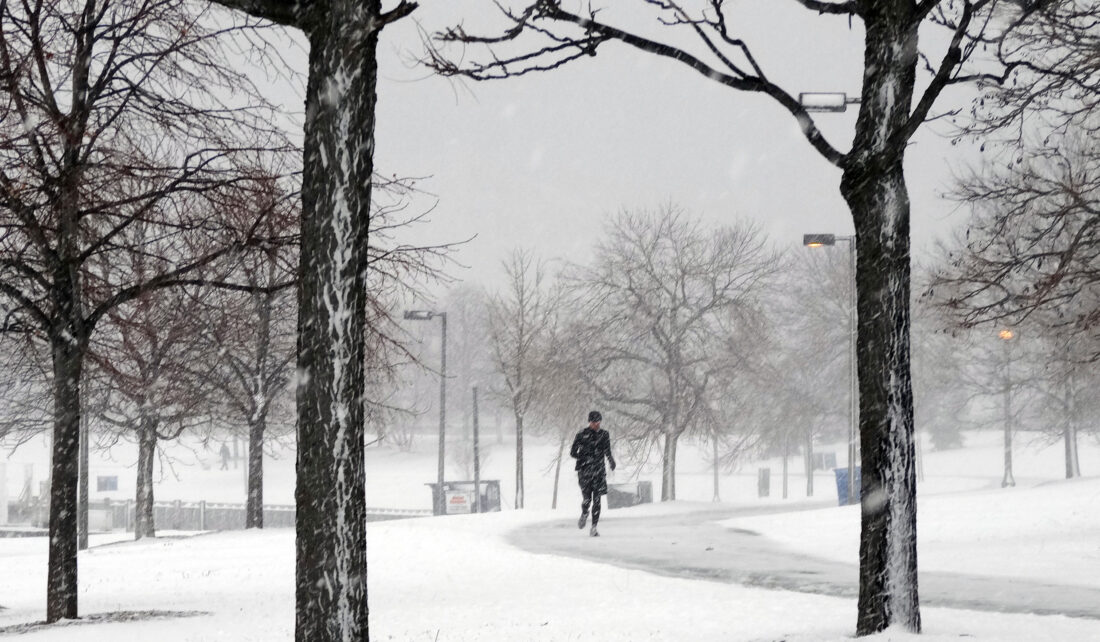
This time of year, we tend to reflect on the last 12 months—what has transpired and what was accomplished—and at the same, to look forward to the promise of the somewhat fresh page of a new year. In that spirit, here are some recent Illinois-Indiana Sea Grant highlights, news and opportunities.
We recently announced $400,000 in funding for four new research projects focused on social issues related to PFAS in the Great Lakes region. PFAS, or per- and polyfluoroalkyl substances, are used in a range of household and other products and these chemicals persist in the environment.
As we learn more about PFAS, researchers have found that they are associated with negative health effects. At the same time, many federal, state and tribal organizations are monitoring and detecting PFAS and related compounds in drinking water and fish.
Focusing on communication and policy issues, the upcoming research projects may help organizations as they communicate with the public about risks related to PFAS, and may help the public determine what actions to take to reduce the risks.
The funding for this work was provided by the National Sea Grant Office—the process to select new research projects included a scoping process to define social and economic knowledge gaps related to PFAS.
These “forever chemicals” are just one of several water resources issues covered in the 2023 issue of our annual magazine, The Helm. This publication is a collection of program research, outreach, and education accomplishments as well as ongoing activities that address coastal concerns. In addition to the prevalence of PFAS in Lake Michigan, this issue of The Helm describes IISG programs related to managing stormwater through green infrastructure, and how students are learning about water quality through a variety of hands-on opportunities.
The new year will bring another round of IISG support for a cohort of graduate students as they enhance their research. To that end, we have announced a call for applicants for the 2024 IISG Graduate Student Scholars Program. At the same time, our 2023 scholars are joining previous ones who have shared their research stories in our Meet Our Grad Student Scholars series.
The IISG Scholars Programs are part of an effort to help build a community of researchers and outreach professionals focused on critically important Lake Michigan issues. Through these programs, researchers are introduced to the issues and the people, organizations and communities that are affected by them.
For undergrads, the IISG Summer Internship Program provides opportunities for students to gain meaningful real-world experience working with our specialists engaging in research, outreach, or communication activities. In 2024, we are hiring interns to help further our efforts related to aquatic invasive species, sustainable communities, water affordability and youth education.
Finally, congratulations to Ashley Belle, our Great Lakes Areas of Concern (AOC) specialist, who was honored recently with a University of Illinois Extension award in the category Individual Extension Excellence—Field-based Academic Professional (9 years or less). Belle, who is located in the U.S. EPA Great Lakes National Program Office, plans public meetings and develops a variety of outreach products to inform AOC residents as their communities undergo environmental cleanup.
Tomas Höök
Director, Illinois-Indiana Sea Grant
Illinois-Indiana Sea Grant is a partnership between NOAA, University of Illinois Extension, and Purdue University Forestry and Natural Resources, bringing science together with communities for solutions that work. Sea Grant is a network of 34 science, education and outreach programs located in every coastal and Great Lakes state, Lake Champlain, Puerto Rico and Guam.

